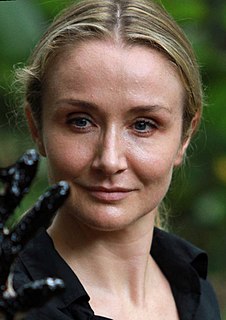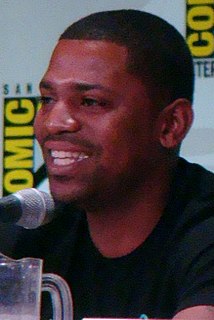A Quote by Deb Haaland
I will fight special interests in Washington who exploit Native, rural, and low income communities for the purpose of fracking and drilling that pollutes our environment. No short or long term gain is worth polluting our water. Water is life.
Related Quotes
I believe water will be the defining crisis of our century — from droughts, storms, and floods to degrading water quality. We'll see major conflicts over water and the proliferation of water refugees. We inhabit a water planet, and unless we protect, manage, and restore that resource, the future will be a very different place from the one we imagine today.































